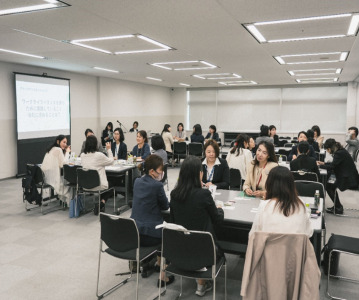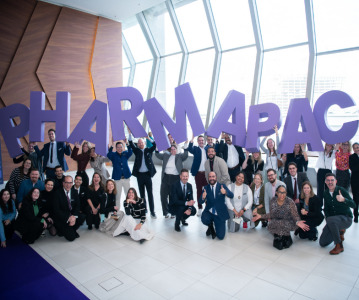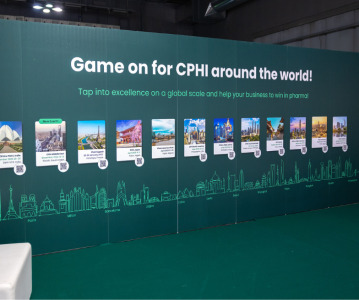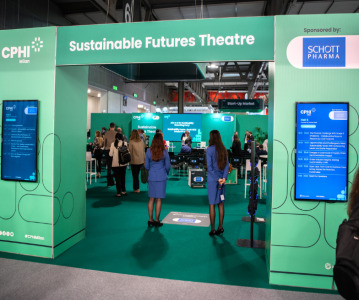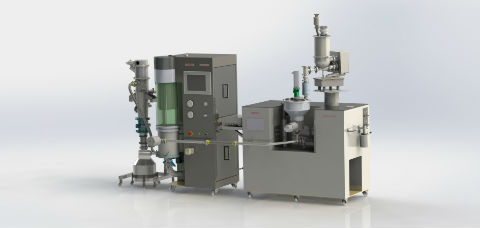Expert forecasts huge growth in Middle East manufacturing

UAE consumers and insurance companies are willing to pay for highest quality drug products.
CPHI Middle East & Africa (CPHI MEA) expert Madhukar Tanna, CEO of Pharmax, a United Arab Emirates (UAE) based branded generic manufacturer, says favourable conditions in the UAE are resulting in a boom of pharmaceutical manufacturing throughout the region. Government incentive schemes to increase domestic production, coupled with a brand-friendly environment and rising healthcare needs is fuelling surging demand – with many new companies and plants launching in the last 2 years alone.
Currently, the UAE imports 90% of medicines, with generics accounting for up to 60% of these imports. However, it has been well publicised that the UAE has identified pharmaceutical manufacturing as a key growth area, with the number of domestic pharmaceutical companies expected to increase significantly.
Commenting on the MEA market, Tanna said: “The picture in the UAE is particularly favourable, as we don’t have a true generics sector – rather just branded generics. Drugs produced by manufacturers for sale in the UAE, whether generic or innovator, are licensed to a specific brand. This ensures the highest quality – for which UAE consumers and insurance companies are willing to pay. The other aspect is that consumers are also willing to pay a premium for drugs made by trusted brands, meaning that in the last few years we have seen a sudden growth of manufacturers. In addition, beyond the UAE there is of course the option of selling into other parts of the MENA region, providing other high-growth markets.”
Experts believe ahead of the second CPHI MEA – where nearly 4,900 professionals and 294+ exhibiting companies will be in attendance – the opportunities in the region are rapidly opening-up and many international firms are now looking to partner with local manufacturers to bring products to market. As an example of the increased internationalisation across the region, representatives from more than 100 countries are expected in only the event’s second edition. This year’s event will include finished dose drug companies, ingredients suppliers as well as contract manufacturers and machinery specialists – who are responding to the growth potential of the region.
Many manufacturers in the region are operating a new type of regional partnering model. For example, the drive towards locally produced final products in the UAE is supported by development work and process chemistry conducted outside the UAE , and bioequivalence studies from countries such as Jordan. Then once the product has completed development and is ready for commercial sale, manufacturing is transferred to a local manufacturing site in Dubai.
However, in just 2 years’ time, Tanna believes as the industry matures ‘much of the development work will start to be conducted directly in the UAE’, and this will form a ‘natural evolution’, with regional generic supply also expanding. In the longer term, ‘5 years hence, we will likely see some of the industry also acting as contract manufacturers for supply into Europe’.
“I am totally convinced and confident that the formulation development work will be done in the UAE within 2 years – guaranteed,” added Tanna.
The conditions have come together synergistically in the last few years, with investors helping build improved plants and launch entirely new companies. It is anticipated that as many as 20 more facilities could be added in the next few years, with the UAE emerging as a new final product manufacturing hub.
“At CPHI MEA we have seen a notable increase in new finished product manufacturers across the region looking to work with international partners for development and API, as well as sourcing regional distributors. The conditions are really favourable, and we continue to see an expanding base of manufacturing, particularly in the UAE, Jordan and Saudi Arabia.” added Cara Turner, Brand Director at Informa.
The region, however, does face a number of potential head winds, including a need for further integration across the GCC (Gulf Cooperation Council) – which despite recent efforts over the last 5 years – still fall short of true mutual recognition among all parties according to Tanna. He believes that we could be set for ‘a period of extended compounded growth if the region’s Governments can align more quickly’.
The pharma market in MENA was worth $31.8 billion in 2018 and is forecast to grow with a compound annual growth rate of 6.9% reaching $41.5 billion by 2022. Saudi Arabia remains the biggest overall market.
Other areas highlighted for potential growth are inhalers and biosimilars – in particular, we should expect companies to begin investing in sterile capabilities across the region – where there is a particularly noticeable gap in the domestic manufacturing production capabilities.
CPHI MEA will take place at the ADNEC Centre, Abu Dhabi, United Arab Emirates (UAE), from 16-18 September 2019, attracting leaders and key decision makers to the heart of this new pharma hub. The event will co-locate ICSE, P-MEC, Innopack and FDF, providing the opportunity to meet with regional drug manufacturers, suppliers of pharma ingredients, distributors, finished dose manufacturers, and companies involved in pharma machinery, packaging and contract services.
Related News
-
News Women in Pharma: Career Design for Women
Our monthly Women in Pharma series highlights the influential lives and works of impactful women working across the pharmaceutical industry, and how the industry can work towards making the healthcare industry and workplace more equitable and inclusive... -
News Pfizer may shift production back to US under Trump pharma tariffs
At the 45th TD Cowen annual healthcare conference in Boston, USA, Pfizer CEO Albert Bourla outlined the potential for Pfizer to shift its overseas drug manufacturing back to the US as pharmaceutical industry players weigh their options against Presiden... -
News Women in Pharma: Connecting accessible pharma packaging to patients – a Pharmapack Special
Throughout our Women in Pharma series, we aim to highlight how CPHI events encourage discussions around diversity, equity, and inclusion initiatives in the pharmaceutical industry. -
News CPHI Podcast Series: Packaging expert perspectives at Pharmapack 2025
This month's podcast episode sounds a little different, covering the latest event in Paris – Pharmapack 2025. Digital Editor Lucy Chard speaks to several experts direct from the floor of the show, bringing you right in on the action.&nbs... -
News Closing 2024 with Editors' picks of top articles from the past year
Coming to the end of 2024 and it’s certainly been a busy year, for CPHI and for the rest of the pharmaceutical and healthcare industry. Topics of conversation throughout the last 12 months have been varied, touching on the technical, to the polit... -
News SCHOTT Pharma’s sustainable journey with CPHI
Sustainability is of paramount importance in the pharmaceutical industry. See how a recent partnership between CPHI and SCHOTT Pharma has helped to highlight and accelerate their sustainability journey to reach global goals. -
News CPHI Podcast Series: Investing in a vision for the future of life sciences
In this episode Lucy Chard is joined by Rajiv Khatau to discuss the importance of looking into new therapeutic areas and some of the more niche areas of pharmaceuticals, and investing in the future of the industry. -
News Lessons from CPHI Milan 2024: Sunny Intervals for Pharma Manufacturing?
As the 2024 CPHI conference wrapped up in Milan, we caught up with L.E.K. Consulting – a global strategy consulting firm with deep expertise in pharma manufacturing – to discuss evolving market perspectives and business outlook.
Recently Visited
Position your company at the heart of the global Pharma industry with a CPHI Online membership
-
Your products and solutions visible to thousands of visitors within the largest Pharma marketplace
-
Generate high-quality, engaged leads for your business, all year round
-
Promote your business as the industry’s thought-leader by hosting your reports, brochures and videos within your profile
-
Your company’s profile boosted at all participating CPHI events
-
An easy-to-use platform with a detailed dashboard showing your leads and performance
